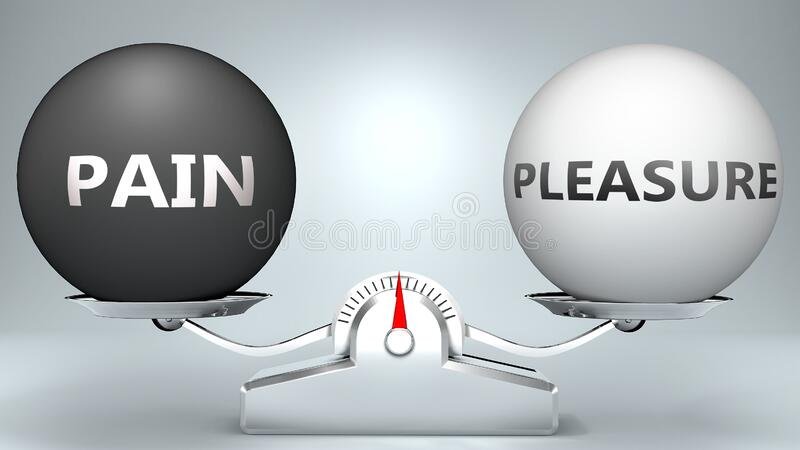No Pain No Pain?
“The cure for pain is in the pain.”— Rumi
I’ve always thought of pain as something to avoid, a hard-wired internal signal that tells you to back off, like when you instinctively remove your hand from a hot stove or when you remove yourself from a stressful situation. Our mantra in class is “no pain, no pain,” and I always tell my students to back off a pose if if it causes physical pain.
But an NPR Life Kit podcast episode made me think differently about pain. Don’t get me wrong, I still think you should remove your hand from a hot stove or back off if you’re feeling physical pain in a yoga pose, but I no longer think you should necessarily try to avoid all kinds of pain off the mat.
The Life Kit episode was called Too much pleasure can lead to addiction. How to break the cycle and find balance. The guest was Dr. Anna Lembke, author of Dopamine Nation, Finding Balance in the Age of Indulgence.
“Pleasure and pain are co-located in the brain, but they work like opposite sides of a scale,” explains Lembke. “When we experience pleasure, the scale tips one way; when we experience pain, it tips the other. But the overarching rule governing this balancing act is that the scale wants to remain level—it doesn’t want to be tipped too long to the side of pleasure or of pain—and your brain will work very hard to restore a level balance, (i.e., homeostasis).”
You’ve probably heard of dopamine, the neurochemical manufactured in the brain that’s responsible for pleasure and reward. We get dopamine hits from sugar, sex, exercise, alcohol, video games, social media, shopping, drugs, caffeine, listening to music, texting, smelling cookies in the oven, etc.
When dopamine hits bring pleasure, says Lembke, the brain quickly responds with pain (i.e., craving, regret, or other negative feelings) in order to balance the scale. That’s why if we, say, eat a piece of chocolate, we immediately want another. The brain is actually required to make sure that the pleasure we get from that piece of chocolate is balanced out with an equal measure of pain in order to keep the scale even. The more pleasure we feel, the more pain we need to restore homeostasis.
In modern society, we’re bombarded with pleasure-producing stimuli and our brains quickly adjust. Then we need more and more just to feel a slight pleasure boost and, eventually, just to feel "normal," or not in pain. Hence the “dopamine deficit” addiction cycle people succumb to in different ways and to differing degrees that can lead to the universal symptoms of withdrawal from any addictive substance: depression, anxiety, irritability and insomnia.
Addiction aside, in my mind, pleasure is one of the keys to happiness and we should seek it out. But a more important key to happiness is personal and collective growth, which to me primarily comes from present-moment awareness, compassion, and yes, pain.
Although I don’t directly seek out pain, my approach to it has changed since I listened to this podcast. I’ve begun to realize that when I pay attention to it rather than try to avoid or fight it, it begins, as Rumi writes, to cure itself.

